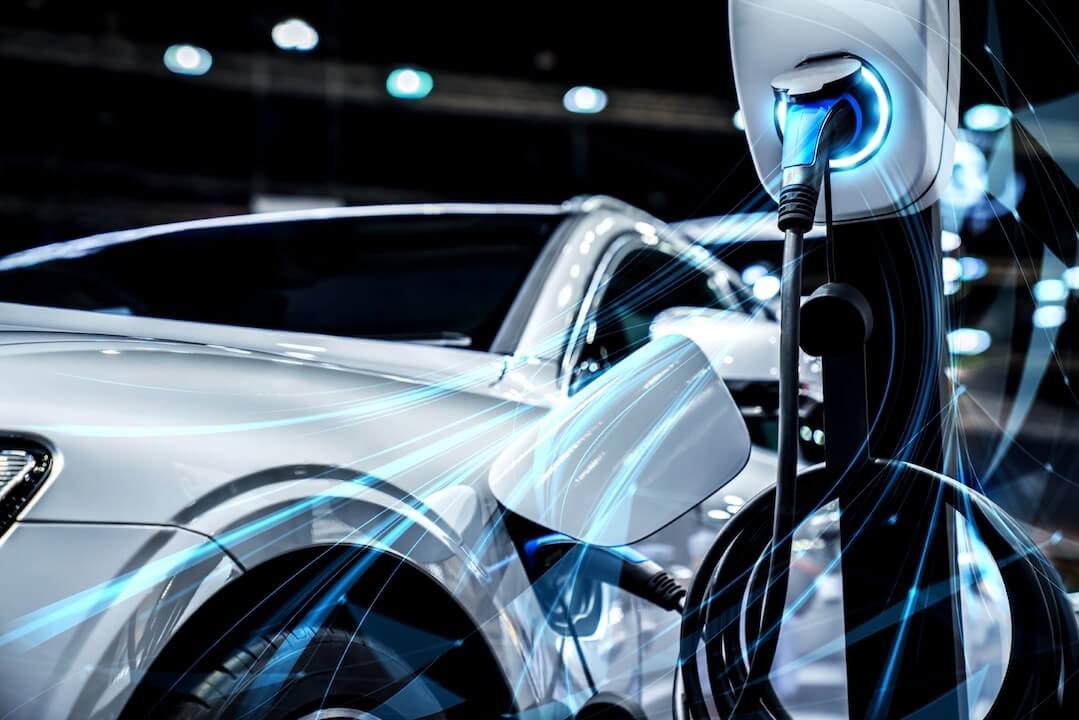Top Car Brands Leading the Charge in Electric Vehicle Innovation
Electric vehicles (EVs) are transforming the automotive industry, driven by advancements in technology and a growing emphasis on sustainability. As the world moves towards greener solutions, several top car brands are leading the charge in electric vehicle innovation. This article delves into the contributions of key players like Tesla, Nissan, and BMW, exploring how they are shaping the future of transportation.

Tesla: Pioneering the Electric Vehicle Revolution
Tesla is synonymous with electric vehicles and has been at the forefront of the EV revolution. Founded by Elon Musk, Tesla's mission is to accelerate the world's transition to sustainable energy. Tesla's contributions to the electric vehicle industry are unparalleled, with innovations that have set new standards for performance, range, and autonomous driving.
-
Model S, 3, X, and Y: Tesla's lineup, including the Model S, Model 3, Model X, and Model Y, has redefined what electric vehicles can achieve. The Model S, for instance, boasts a range of over 400 miles on a single charge, showcasing Tesla's superior battery technology.
-
Autopilot and Full Self-Driving: Tesla's Autopilot system offers advanced driver-assistance features, and the company is continuously improving its Full Self-Driving (FSD) capabilities. This technology promises a future where electric vehicles can drive themselves with minimal human intervention.
-
Supercharger Network: To address range anxiety, Tesla has built an extensive network of Superchargers, enabling long-distance travel with convenient, high-speed charging stations. This infrastructure is critical in making electric vehicles a practical choice for many drivers.
-
Gigafactories: Tesla's Gigafactories are monumental in scaling the production of electric vehicles and batteries. These facilities aim to reduce costs and increase the availability of EVs, making sustainable transportation more accessible.
Nissan: Pioneering Mass-Market Electric Vehicles
Nissan has played a crucial role in bringing electric vehicles to the mass market. The Nissan Leaf, launched in 2010, is one of the best-selling electric cars globally, making EVs more affordable and practical for everyday use.
-
Nissan Leaf: The Nissan Leaf was one of the first mass-market electric vehicles, and it continues to be a popular choice for eco-conscious consumers. With a range of up to 226 miles and various models to suit different needs, the Leaf has made electric vehicles accessible to a broader audience.
-
e-Power Technology: Nissan's e-Power technology combines an electric motor with a gasoline engine that charges the battery. This innovation provides the benefits of electric driving without the need for external charging, offering a practical solution for those not ready to transition fully to EVs.
-
Sustainable Manufacturing: Nissan is committed to reducing its environmental footprint through sustainable manufacturing practices. The company’s plants in Japan and the UK use renewable energy sources, and Nissan aims to achieve carbon neutrality by 2050.
-
Intelligent Mobility: Nissan Intelligent Mobility encompasses a range of technologies designed to make driving safer and more enjoyable. This includes ProPILOT, an advanced driver-assistance system that helps with steering, acceleration, and braking in single-lane highway driving.
BMW: Blending Luxury with Electric Performance
BMW is known for its luxury and performance vehicles, and the brand has seamlessly integrated these qualities into its electric vehicle lineup. BMW's i series, including the i3 and i8, exemplifies the brand's commitment to sustainable luxury.
-
BMW i3 and i8: The BMW i3 is a compact, all-electric vehicle designed for urban driving, while the i8 is a plug-in hybrid sports car that combines electric power with a turbocharged engine. Both models showcase BMW's ability to blend performance with sustainability.
-
BMW iX and i4: BMW's latest additions to its electric lineup, the iX and i4, offer impressive range and performance. The iX is an all-electric SUV with advanced connectivity features, while the i4 is a sleek electric sedan designed to compete with the best in the market.
-
Sustainable Materials: BMW is committed to using sustainable materials in its vehicles. The i3, for example, features a carbon fiber-reinforced plastic body and interior components made from recycled materials. This focus on sustainability extends to the production process, with BMW's plants utilizing renewable energy sources.
-
Charging Infrastructure: BMW has partnered with various companies to expand charging infrastructure, making it easier for customers to charge their electric vehicles. This includes collaborations with ChargePoint and EVgo, providing access to a vast network of charging stations.
The Future of Electric Vehicles
The contributions of Tesla, Nissan, and BMW to the electric vehicle industry are significant, but the future of EVs is a collaborative effort. Other car brands, including Ford, General Motors, Volkswagen, and Hyundai, are also investing heavily in electric vehicle technology, each bringing unique innovations to the table.
-
Ford: Ford has introduced the Mustang Mach-E, an all-electric SUV that combines the iconic Mustang design with cutting-edge electric performance. Ford is also investing in electric trucks, with the F-150 Lightning set to revolutionize the market.
-
General Motors: GM aims to go all-electric by 2035, with a lineup that includes the Chevrolet Bolt and the upcoming Hummer EV. The company is also developing the Ultium battery platform, which promises to deliver exceptional range and performance.
-
Volkswagen: Volkswagen's ID. series, including the ID.3 and ID.4, represents the brand's commitment to electric mobility. VW's MEB platform is designed to underpin a wide range of electric vehicles, making EVs more versatile and affordable.
-
Hyundai: Hyundai's Ioniq series offers a range of electric, hybrid, and plug-in hybrid models. The Ioniq 5, built on Hyundai's E-GMP platform, features fast charging and a spacious interior, making it a strong contender in the EV market.
Challenges and Opportunities
While the future of electric vehicles is promising, there are challenges to overcome. Battery technology, charging infrastructure, and consumer adoption are critical areas that require continued innovation and investment.
-
Battery Technology: Advancements in battery technology are essential for improving the range, performance, and affordability of electric vehicles. Solid-state batteries, which offer higher energy density and faster charging times, are a promising development in this field.
-
Charging Infrastructure: Expanding and improving charging infrastructure is crucial for the widespread adoption of electric vehicles. Governments and private companies must work together to build a network of fast-charging stations that make EV ownership convenient and practical.
-
Consumer Adoption: Educating consumers about the benefits of electric vehicles and addressing concerns about range anxiety and charging times are key to increasing adoption rates. Incentives such as tax credits and rebates can also help make EVs more attractive to potential buyers.
Conclusion
The contributions of top car brands like Tesla, Nissan, and BMW have been instrumental in advancing the electric vehicle industry. These companies have demonstrated that electric vehicles can offer superior performance, luxury, and sustainability. As more car brands join the movement towards electric mobility, the future of transportation looks increasingly green and innovative. By addressing challenges and continuing to push the boundaries of technology, the automotive industry is paving the way for a sustainable future where electric vehicles are the norm.
Electric vehicles are not just a trend; they are the future of transportation. The journey towards widespread EV adoption is well underway, thanks to the pioneering efforts of top car brands committed to innovation and sustainability. The road ahead is filled with opportunities to create a cleaner, greener, and more efficient transportation system for all.


You must be logged in to post a comment.